A club that bends to every cry of its fans inevitably ends up dancing to their tune. That is the trap Manchester United and Rúben Amorim have walked into, skipping the process they themselves proposed, and now facing the consequences as the players tagged their future have now turned into outcasts.
Under Rúben Amorim, Manchester United’s rebuild plan was meant to signal a turning point, a chance to draw a line under years of stagnation and finally create a team capable of competing with the best.
Instead, it has become an illustration of how not to rebuild. By leaning heavily on expensive arrivals and sacrificing youth already integrated into the team, the process has taken a route that feels unsustainable.
It stands in stark contrast to other clubs who have successfully undergone similar transitions, most notably Barcelona and Arsenal.When Barcelona restructured post-Messi, they leaned on La Masia graduates like Gavi, Ansu Fati, and Alejandro Balde, alongside modest signings such as Pedri, to provide stability while gradually layering in smart, targeted additions.
Flashy arrivals during that period only came for no or modest fees. Memphis Depay, Pierre-Emerick Aubameyang, Luuk de Jong, and Eric Garcia all joined from top clubs but at minimal cost. The Catalan club didn’t flood their squad with costly acquisitions in one swoop; they rebuilt patiently, trusting youth to set the tempo of their resurgence.
In the same vein, United’s English rivals Arsenal climbed back under Mikel Arteta by following a similar pattern. The Spaniard placed faith in Bukayo Saka, Emile Smith Rowe, and Gabriel Martinelli, supplementing them with relatively modest but purposeful buys such as Aaron Ramsdale and Ben White.
The strategy wasn’t without bumps, but it allowed them to reset their culture, grow a hungry squad together, and return toward the top table of English football, with neither fans nor club hierarchy frustrated enough to show him the exit.
This worked because both Barcelona and Arsenal resisted overspending, accepted their fate as clubs in transition, and stuck with the manager to lead them through the struggles.
Manchester United, by contrast, appear to be skipping the building phase entirely in their so-called project. Rather than building around the likes of Kobbie Mainoo, Alejandro Garnacho, and Amad Diallo, Amorim’s methods have turned these players into outcasts.
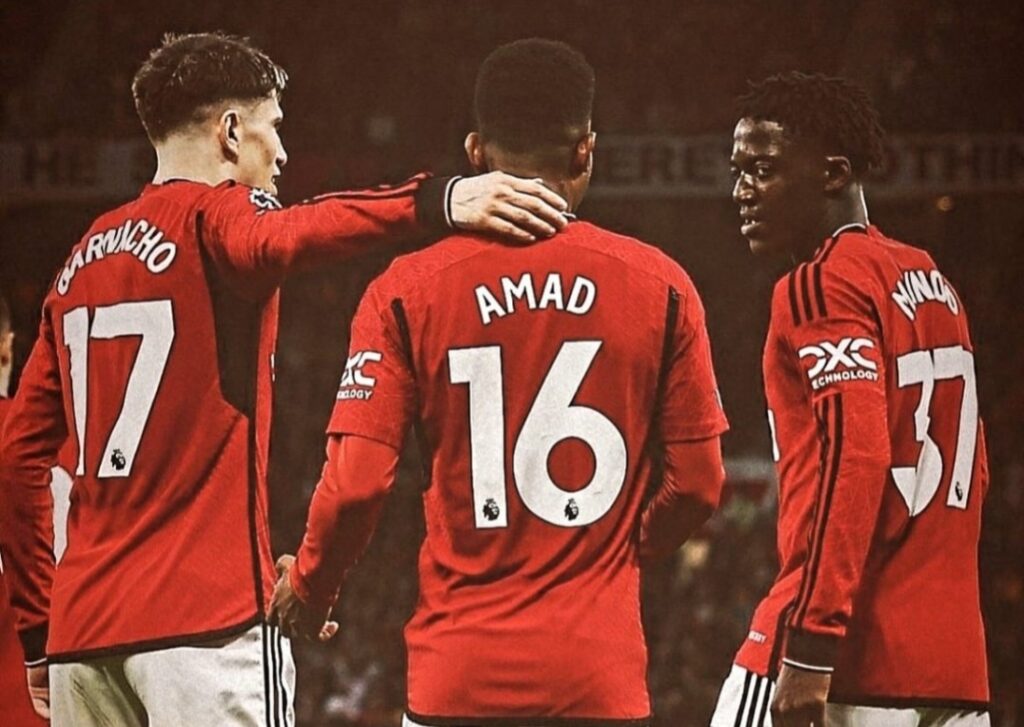
Mainoo is frustrated enough to consider an exit at a club he has been at for more than half his life. Garnacho looks set to leave as well, even though Chelsea, the only interested club, seems to be capitalizing on the situation rather than paying his true value.
Amad Diallo, the only member of the young trio expected to remain, has been shunted into unnatural roles, with a starting place now far-fetched.
By opting to overspend and promise too much too soon, Amorim has put unnecessary pressure on his squad, raised fans’ expectations, and invited scrutiny that a fragile rebuild simply cannot withstand.
The backlash was inevitable following their failure to win at Fulham on Sunday, a match where they were second best and only scored via an own goal. Where was the performance against Arsenal? Gone.
What looked like an intended performance has now become a sequence of quick passes, revealing that it is the same old United. Some decisions, ones not worth taking, may have already set both the manager and the management up for disaster.
How Not To Rebuild | A Ruben Amorim & Manchester United’s Disasterclass
In this article, we continue by outlining the reasons why this approach by the Red Devils is exactly how not to build, highlighting just how flaw-filled the strategy embraced by Rúben Amorim truly is.
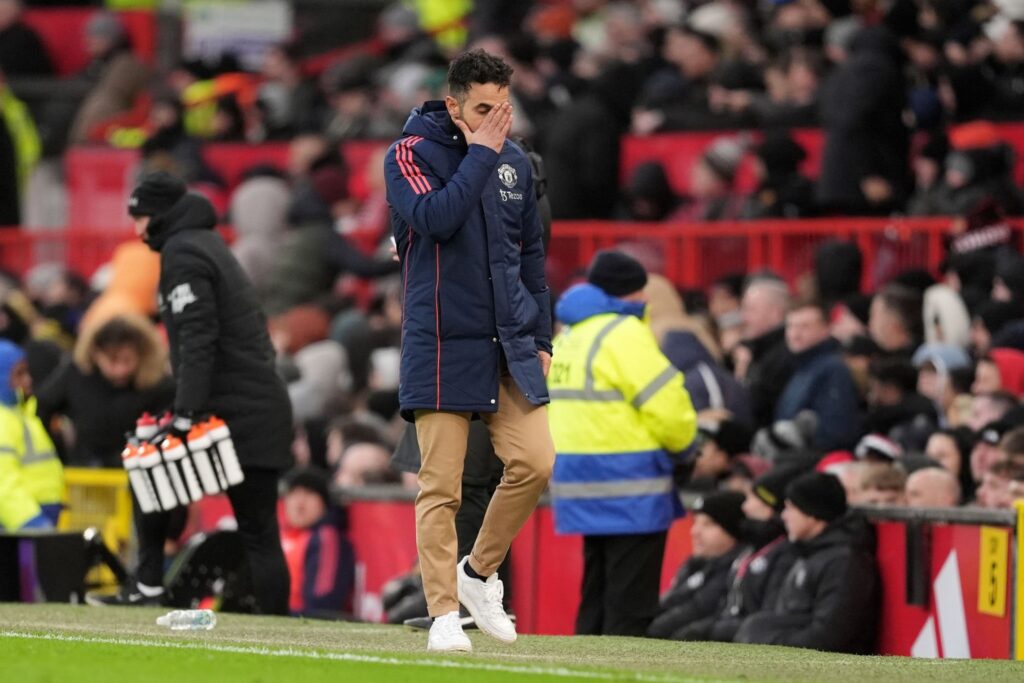
The flaws, explain in two points with failure to contain one leading to the other. It’s a process after all, and supposed to progress one step at a time, but the Mancunians fell to external pressure, the desperation to get the club back to the top ASAP.
Expectation Overload in Year One
One of the cardinal mistakes Amorim and United have made is investing too heavily in Year One of the rebuild. Expectations skyrocketed as huge spending sent a message of immediate success and long-term dominance.
But when fan excitement is stoked prematurely, only to be smothered by inconsistent performances at the start of the season, the fall is far steeper and someone has to provide answers to the uncomfortable questions.
Maybe the ambition of these players (new signings) also played parts in the mayhem. A club without lure of continental football should not be capable of pulling these signings, but these players turned down approaches elsewhere in favour of moves to Old Trafford. But what was seen as strength is now contributing to the malady threatening the rise of their club.
It’s simple. When you have good players, you should be capable of consistently good result. But that is not how it works in football, because players need time to gel, and understand how to play as a team, and carryout the coach’s tactics.
Amorim himself recently admitted the squad isn’t yet prepared for European competition and needs more time to develop a strong foundation. But with so much investment already made on readymade, that statement suggests a likely drop in performances from new players.
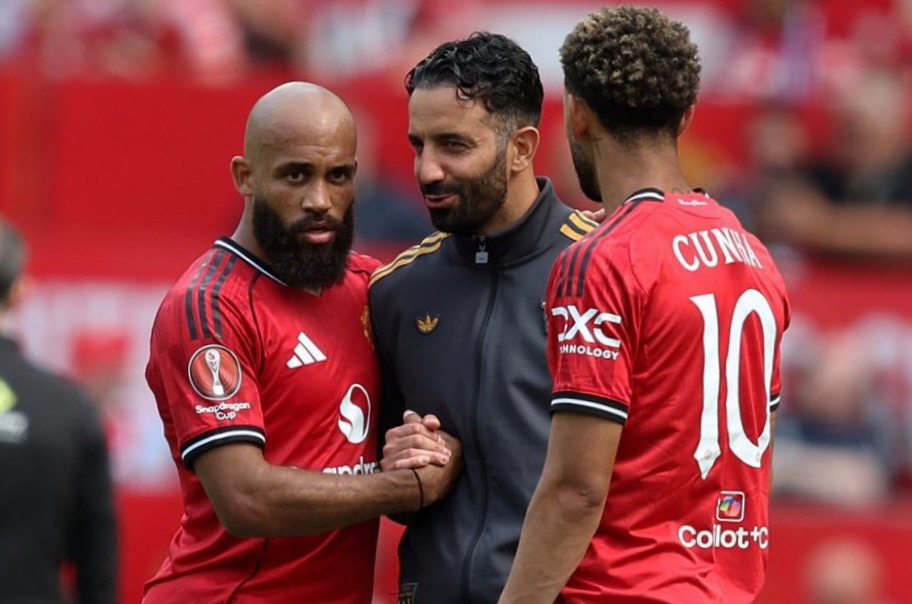
In no environment, especially at one like Manchester United, will such dips be unacceptable. The fans, already hyped by the arrivals of Bryan Mbeumo and Matheus Cunha, both of whom scored 15+ Premier League goals last season, will not gleefully show patience, while they turn in performances less to their previous attackers, whom they’ve casted out to accommodate them.
Youth Talent Stars Turning to Exile
The overzealous attempt to return to prominence without going through the process has a cost, and that includes the toll it’ll take on the players, especially the young ones.
Kobbie Mainoo, Alejandro Garnacho, and Amad Diallo, who are considered the future of the club and played significant part while being impactful in the little success enjoyed during the trying times, are now being casted out by Amorim.
But these are not unexpected at a club where direct competitions, in the form of superstars have come in. It’s the World Cup season and every player wants to be able to represent their country. You chance is no good when you don’t play at club level.
News of Mainoo’s desire to leave the club was always going to be greeted with outrage toward Amorim, who has diminished the youngster’s role by dropping Bruno Fernandes into central midfield to accommodate Cunha in a double 10.
The latest breakout star from Carrington, Mainoo impressed even in a struggling team, delivering performances that earned him a national team call-up and a start for England in the Euros semi-final against the Netherlands.
The midfielder, who scored the winner in the 2024 FA Cup final, has since endured scattergun usage under Amorim. He has been played as a false 9, unfamiliar spaces and displaced by Bruno Fernandes, who is also being played out of position.
While speaking on TalkSport, pundit Tony Cascarino lamented that Mainoo “looks confused and afraid to lose the ball, not due to lack of ability, but due to constant tactical tinkering.”
Another fan-favorite academy product, Alejandro Garnacho has suffered a similar fate. His restricted role led to rebellious acts, which have now pushed him to the gates of Old Trafford, waiting for his next club for pick up.
Amad Diallo, the only one still with the squad, has lost his starting slot despite being top two the club’s best player and never swaying until being drop. The arrival of Bryan Mbeumo has even forced him into competition with Diogo Dalot in a wingback role.
Why Top Clubs Win While United Lag
Other elite clubs didn’t chase early fireworks; they laid foundations. They integrated youth and communicated realistic roadmaps. Even clubs without a rich crop of prospects still promoted from their academies to navigate transitional phases.
It took Mikel Arteta three years to make Arsenal a force again in England, while Xabi Hernandez took less period at Barcelona. Either ways, they had to accept their reality, and build, not bypass the foundation of the intention.
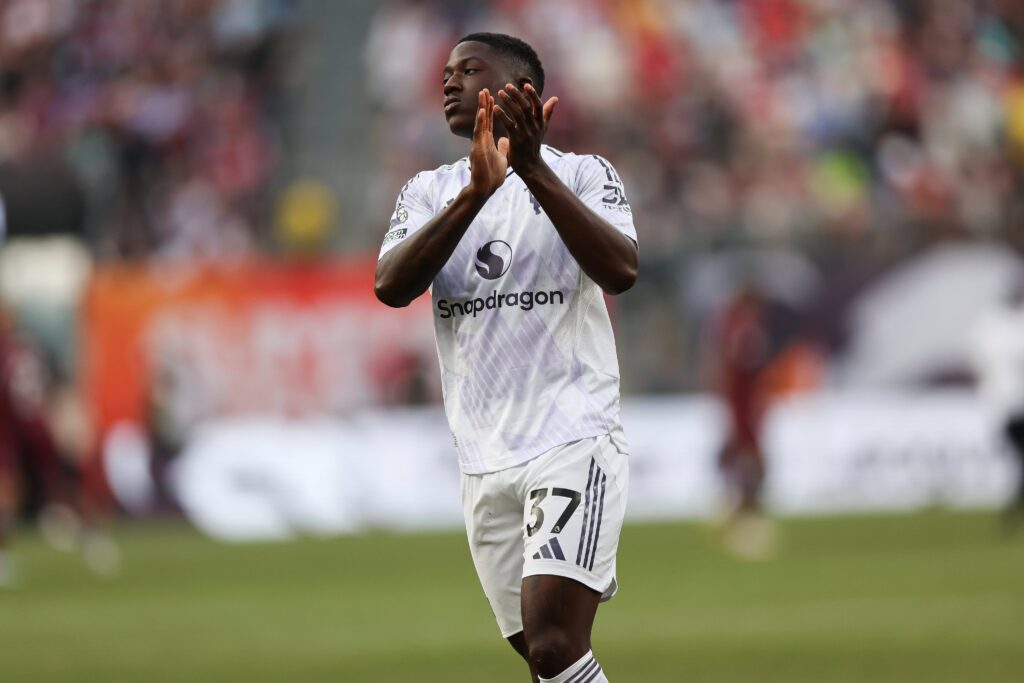
United, by contrast, poured resources into signings despite already having three players, Mainoo, Garnacho, and Amad, who could have been the cornerstones of a steady rebuild, without the pressure of immediate success.
A Case Study in How Not to Rebuild
Manchester United had the chance to learn from past mistakes but haven’t. The project isn’t doomed, it’s still early in the season, but losing their best youngsters would be a sin Amorim may never be forgiven for.
Before turning 20, both Garnacho and Mainoo lit up Old Trafford under the floodlights. They did it under Erik ten Hag, Ruud van Nistelrooy temporarily, and even under Amorim.
Whatever the Portuguese manager now demands from these players that they cannot provide, one must question whether it’s truly necessary for his success at United.
These departures would hurt more than they appear. What happens when the squad heads deeper into the season with no adequate backups for newly signed players if sidelined by injuries or dropped for poor form?
United’s rebuild was supposed to be a revival. Instead, it risks becoming a cautionary tale, but this isn’t the first time. After failing under Ole Gunnar Solskjaer and Erik Ten Hag, the lesson should have been learnt. Unfortunately, it’s still same old story.
Kehinde-Hassan Afolabi

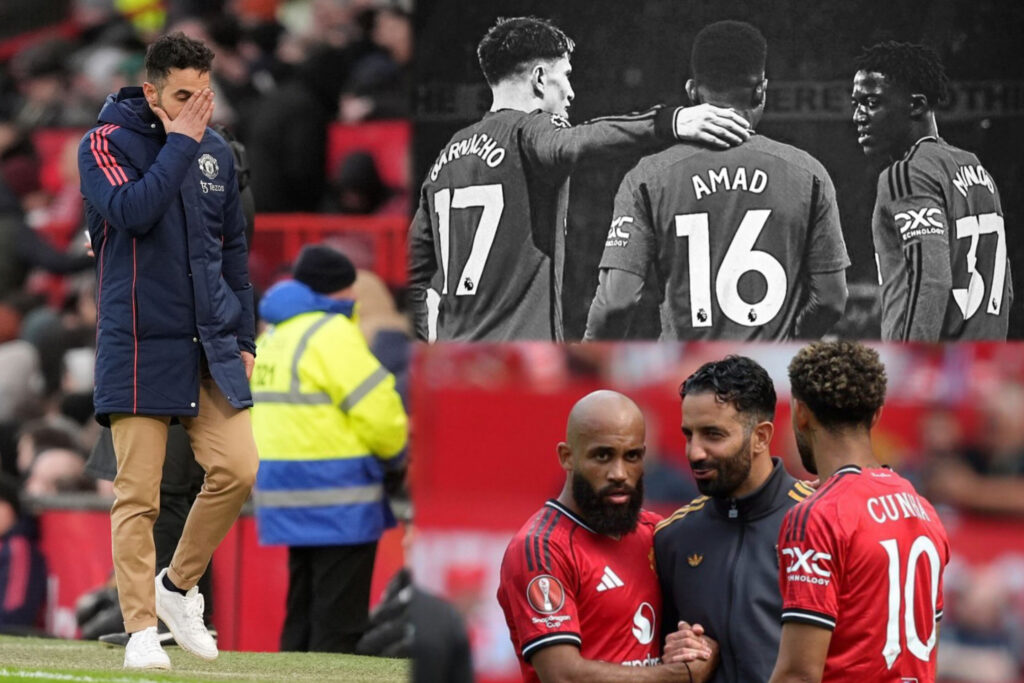
1 Comment
absolutely spot on take
thanks for this brilliant piece